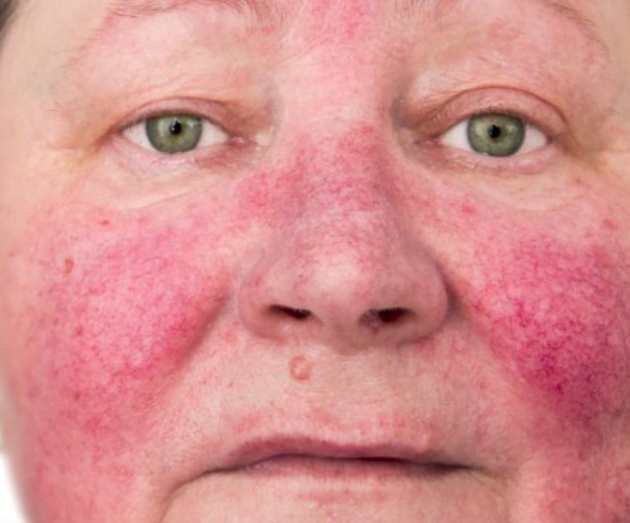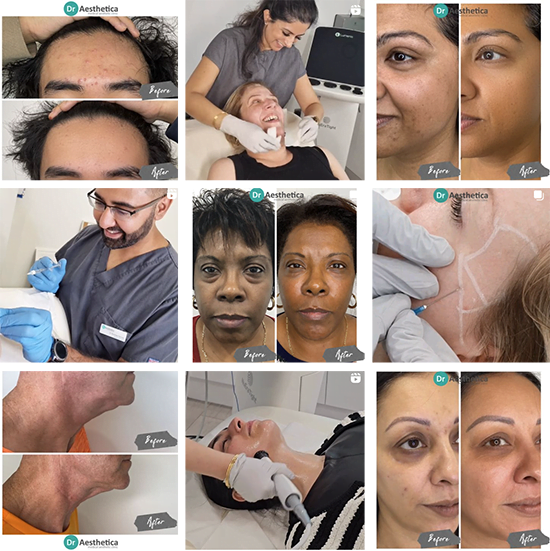Rosacea is a common skin condition characterised by enlarged facial blood vessels giving the cheeks and nose a flushed appearance. Common symptoms of rosacea include:
● Redness of the face
● Tiny red pimples and fine red vascular lines
● Skin can feel tight after a shower
● Red flushing of the face when you go from cold to hot or after a drink of alcohol
Rosacea occurs when the skins hydrolipidic barrier is compromised, making the skin sensitive leading to redness and visible blood vessels. The hydrolipid barrier is a protective barrier on the skin’s surface made up of sebum, lipids, water and sweat. This barrier functions as your skin’s essential self-defence tool, entrusted in shielding it from harmful pathogenic bacteria, free radicals, toxins, and other environmental stressors. For example, excessive exposure to extreme weather conditions or the continued use of harsh skincare products can lead to the skin becoming sensitive and break down the hydrolipidic barrier.
Anybody can get Rosacea at any stage in their life, from early childhood right up to old age. But you may be more likely to develop it if you:
● Are female (4 times more likely than male)
● Have light skin, particularly if it has been damaged by the sun
● Are aged over 30
● Smoke
● Have a family history of rosacea.
● Had severe acne
● Common with hormonal change of menopause











